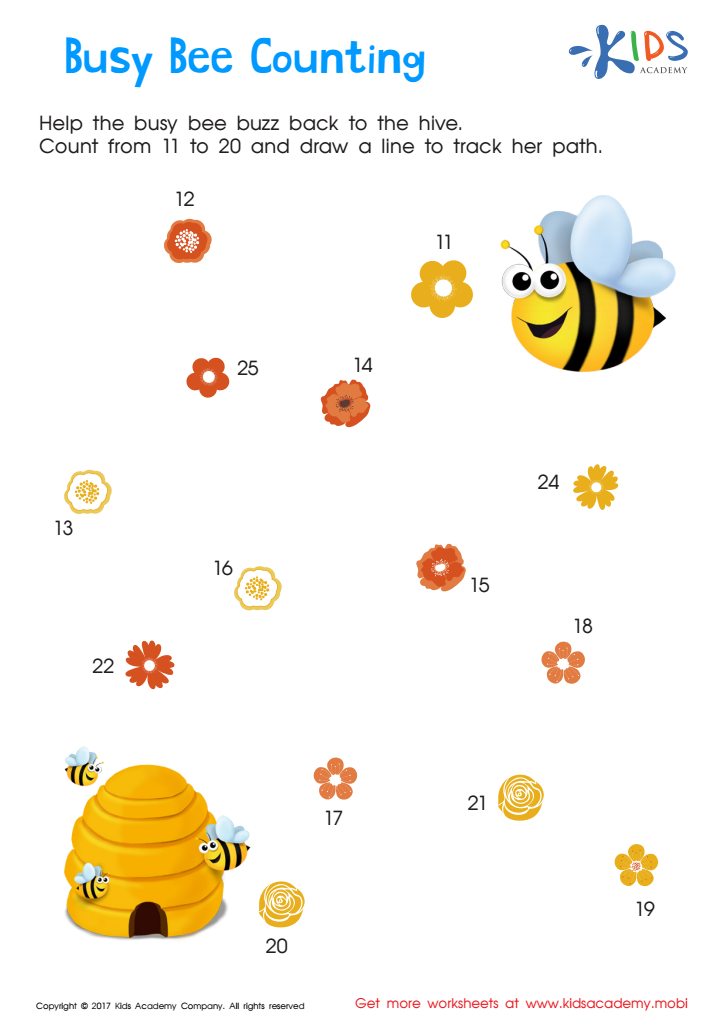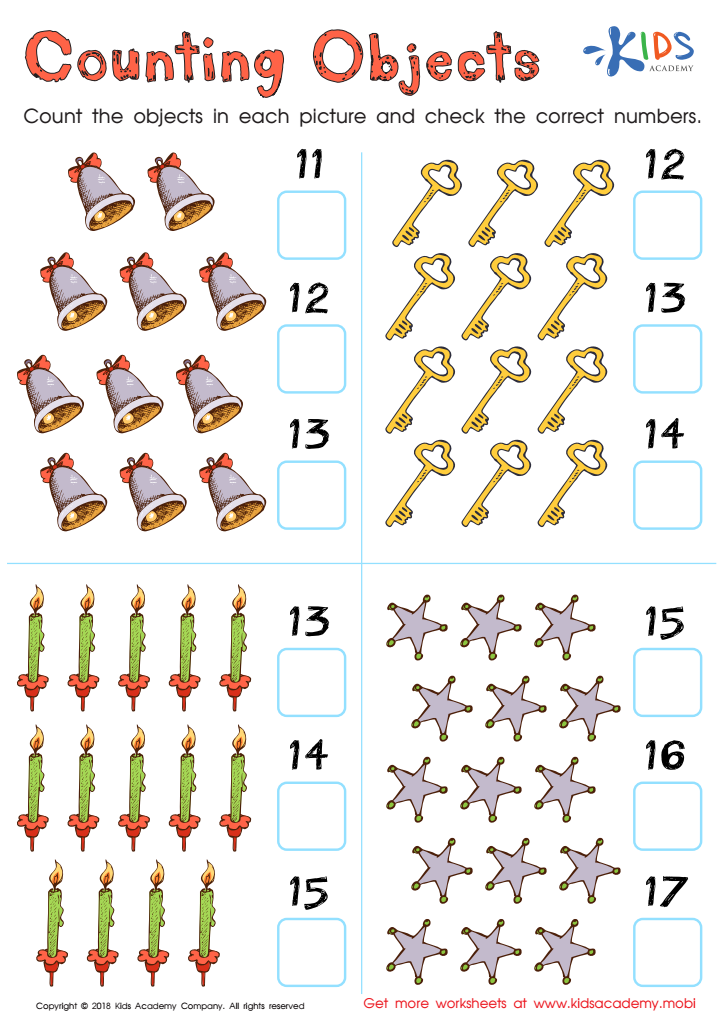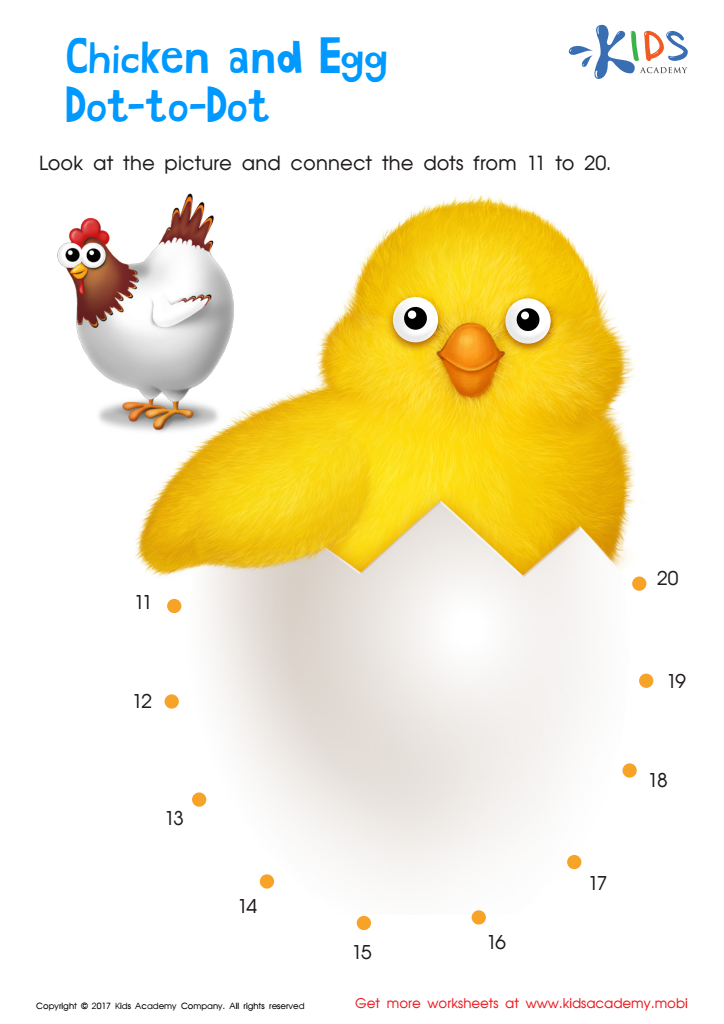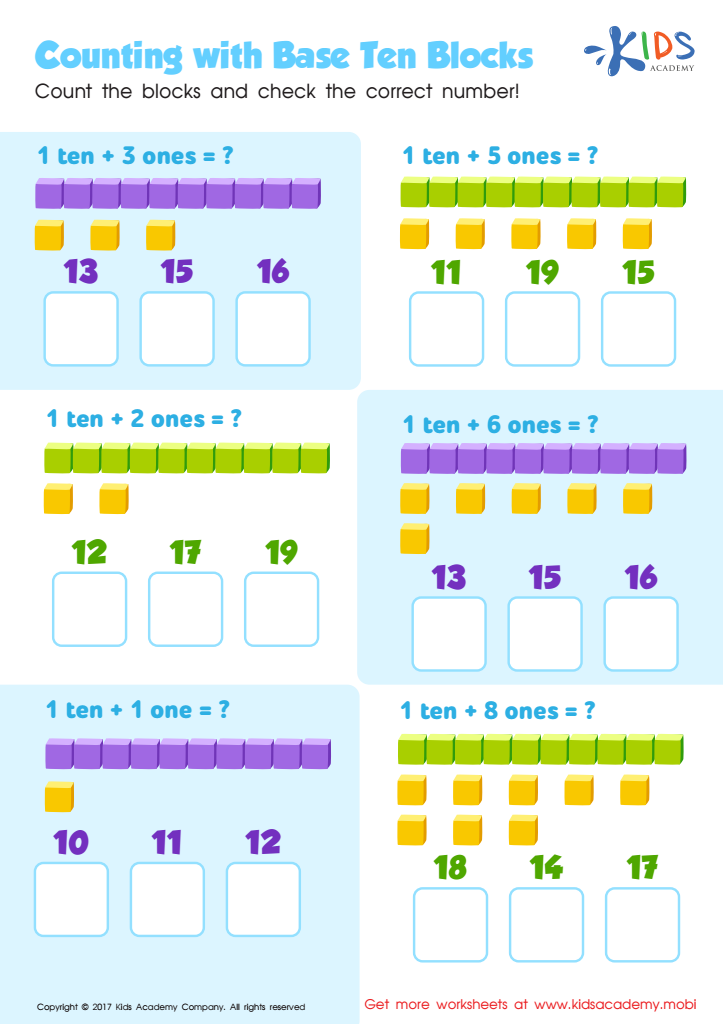Counting practice Numbers 11–20 Worksheets for Ages 4-8
4 filtered results
-
From - To
Unlock your child's potential with our "Counting Practice Numbers 11–20 Worksheets" designed for ages 4-8. These engaging worksheets provide essential practice in recognizing, writing, and counting numbers from 11 to 20. Ideal for early learners, the activities foster number sense and build a strong mathematical foundation. Incorporating a mix of fun illustrations and varied exercises, our worksheets cater to different learning styles and keep children motivated. Perfect for classroom use or at-home reinforcement, these resources support skill development and confidence in counting. Ensure your child’s counting journey is both educational and enjoyable with Kids Academy printable worksheets!


Ordering 11–20: Busy Bee Counting Worksheet


Counting Numbers Worksheet For Kindergarten


Ordering 11–20: Chicken & Egg Dot–to–dot Worksheet


Counting with Base Ten Blocks Worksheet
Counting practice numbers 11-20 is crucial for young learners aged 4-8 as it lays a solid mathematical foundation essential for their future academic success. Mastering these numbers introduces them to the concept of place value, as it is their first encounter with teen numbers that include both tens and ones. This understanding is pivotal as it helps children transition smoothly into more advanced arithmetic, such as addition and subtraction.
Moreover, early familiarity with these numbers enhances cognitive skills like memory, pattern recognition, and problem-solving. When children practice counting, they develop a sense of numerical order and quantity, which are critical skills not only in math but also in everyday situations like comprehending dates, time, money, and measurements.
Engaging in counting practice also boosts language development. As children verbalize numbers, they expand their vocabulary and improve their ability to follow sequences and instructions. This practice can be interactive and enjoyable, incorporating games, songs, and hands-on activities which foster an enjoyable learning environment and encourage a positive attitude towards math.
Overall, parents and teachers play a vital role by providing opportunities and activities for counting practice, ensuring children develop confidence and competence in foundational numeracy skills that are vital for academic achievements and day-to-day problem-solving.
 Assign to My Students
Assign to My Students
















